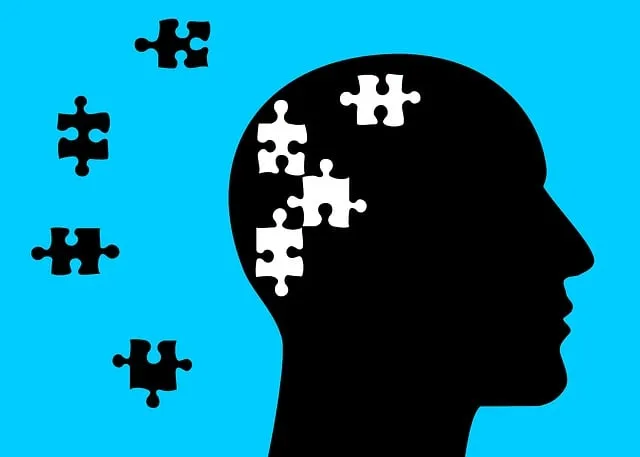The media's portrayal of mental illness significantly shapes public opinion, with accurate depictions encouraging help-seeking behaviors and reducing stigma, while negative portrayals can have the opposite effect. Littleton Kaiser Permanente mental health locations are leading the charge against stereotypes by promoting diverse, nuanced representations in media and popular culture through initiatives like Compassion Cultivation and Mental Wellness Journaling. They emphasize self-esteem building and Mind Over Matter principles to empower individuals with mental health challenges, fostering an empathetic society and breaking down stigma perpetuated by the media. Collaboration between industry professionals and experts from these locations can ensure authentic mental illness storylines, integrating education and burnout prevention strategies for a sensitive approach.
In an era where media influences societal perceptions, accurate representation of mental illness is paramount. This article explores how media portrayal impacts mental health stigma and offers solutions for improvement. We delve into prevalent stereotypes in popular culture and highlight the critical role of organizations like Littleton Kaiser Permanente mental health locations in promoting nuanced, realistic depictions. By examining strategies for enhancing media accountability and fostering awareness, we aim to empower positive change, challenging outdated representations and fostering a more inclusive narrative around mental health.
- Understanding the Impact of Media Portrayal on Mental Health Perception
- Identifying Stereotypes and Misconceptions in Popular Culture
- The Role of Littleton Kaiser Permanente Mental Health Locations in Promoting Accurate Representation
- Strategies for Enhancing Media Accountability and Sensitivity
- Empowering Positive Change through Awareness and Education
Understanding the Impact of Media Portrayal on Mental Health Perception

The media’s portrayal of mental illness significantly shapes public perceptions and understanding of various psychiatric conditions. Often, stereotypical or inaccurate representations in films, television shows, and news coverage contribute to stigma, fear, and misconceptions about people struggling with mental health issues. This is especially concerning as many individuals seek guidance and support from the media when navigating their own mental wellness journeys. For instance, a study by Littleton Kaiser Permanente mental health locations revealed that positive portrayals of therapy and recovery can encourage help-seeking behaviors, while negative or simplistic representations may deter individuals from seeking professional assistance.
Media has the power to either perpetuate harmful stereotypes or foster empathy and compassion. By incorporating more nuanced and accurate stories, the media can play a pivotal role in promoting mental wellness initiatives. Practices like Compassion Cultivation, as encouraged by various Mental Wellness Coaching Programs Development, can be effectively conveyed through media storytelling, helping audiences develop understanding, kindness, and support for those facing mental health challenges. Similarly, Mental Wellness Journaling Exercise Guidance can be featured to inspire readers or viewers to reflect on their own mental health experiences and encourage open conversations around these important topics.
Identifying Stereotypes and Misconceptions in Popular Culture

In popular culture, mental illness is often portrayed through a lens of stereotype and misconception, which can have profound effects on public perception. Media platforms, from television shows to movies, frequently depict mental health conditions in simplistic or sensationalized ways, failing to capture the nuanced realities of lived experiences. For instance, common stereotypes often equate mental illness with violence or complete disassociation from reality, as seen in various action-packed narratives. Such representations not only oversimplify complex disorders but also contribute to the stigmatization of individuals seeking help for their mental health.
At Kaiser Permanente mental health locations in Littleton, efforts are underway to challenge these stereotypes and provide a more accurate portrayal of mental illness. By promoting self-awareness exercises and initiatives that encourage open conversations, these facilities aim to foster understanding and empathy. Self-esteem improvement and inner strength development are key aspects of the healing process, as they empower individuals to navigate their mental health journeys with resilience. Through these efforts, Littleton Kaiser Permanente seeks to dismantle misconceptions, ensuring those in need receive support without the barrier of stigmatized perceptions.
The Role of Littleton Kaiser Permanente Mental Health Locations in Promoting Accurate Representation

The Littleton Kaiser Permanente mental health locations play a pivotal role in promoting accurate representation of mental illness in media and popular culture. These facilities prioritize providing comprehensive care while advocating for nuanced portrayals on screen. By integrating Mind Over Matter principles, they empower individuals with mental health challenges, fostering a deeper understanding among the general public. The locations also emphasize healthcare provider cultural competency training, ensuring that staff are equipped to offer sensitive and effective support.
This commitment extends beyond clinical practice; it inspires local and global conversations about mental wellness. Through community outreach programs and educational initiatives, Littleton Kaiser Permanente fosters an environment where burnout prevention is prioritized, breaking down stereotypes often perpetuated by media. Their proactive approach not only enhances access to accurate information but also contributes to a more empathetic society, challenging outdated representations of mental illness.
Strategies for Enhancing Media Accountability and Sensitivity

To enhance media accountability and sensitivity toward mental illness representation, industry professionals can implement several strategies tailored to foster more accurate and compassionate portrayals. Firstly, media outlets should prioritize consulting with experts in mental health fields, such as those at Littleton Kaiser Permanente mental health locations, to ensure the authenticity of storylines and characters’ experiences. This collaborative approach can help avoid stereotypes and misrepresentations prevalent in past media depictions.
Additionally, integrating conflict resolution techniques into storytelling can promote nuanced understanding of mental health challenges. Incorporating Mental Health Education Programs Design that educate both creators and actors about various conditions can also lead to more empathetic portrayals. Moreover, implementing burnout prevention strategies for healthcare providers involved in producing or reviewing content ensures that the process remains sensitive and avoids further exacerbating existing mental health issues within the industry.
Empowering Positive Change through Awareness and Education

Mental illness representation in media plays a pivotal role in shaping societal perceptions and understanding. By promoting accurate and empathetic portrayals, we can empower positive change through awareness and education. This is particularly significant for fostering inclusive communities, especially within diverse regions like Littleton Kaiser Permanente mental health locations, where a wide range of individuals seek support.
Educational programs designed with a focus on mental health literacy can significantly contribute to self-esteem improvement and emotional intelligence enhancement. These initiatives ensure that people from all backgrounds gain the knowledge and skills needed to recognize and support those struggling with mental health challenges. Through such efforts, we can challenge stigmatizations, encourage early interventions, and ultimately create a more compassionate society where everyone feels supported in their journey towards healing and well-being.
Media representation plays a pivotal role in shaping public perceptions about mental illness. By identifying and challenging stereotypes, organizations like Littleton Kaiser Permanente mental health locations are fostering accurate and sensitive portrayals. Implementing strategies for media accountability and promoting awareness education can revolutionize how mental health is depicted, leading to a more supportive and empathetic society. This collective effort not only empowers individuals struggling with mental health issues but also encourages positive change in the way we understand and address these conditions.






